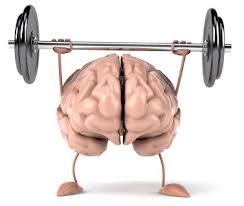Being Bilingual Bolsters the Brain
Posted on October 13th, 2013by Melanie
In Research, Speech, Words | Leave a Comment »
 Does speaking two languages just confuse your brain? Does bilingualism muddle your thoughts and hinder speech in both languages? Well, that used to be the general opinion, especially where children were concerned. On the contrary, we now know that the complete opposite is true, with bilingualism enhancing thought patterns and organizing them into a much clearer format.
Does speaking two languages just confuse your brain? Does bilingualism muddle your thoughts and hinder speech in both languages? Well, that used to be the general opinion, especially where children were concerned. On the contrary, we now know that the complete opposite is true, with bilingualism enhancing thought patterns and organizing them into a much clearer format.
Haven’t you ever sat and listened to someone speaking in two different languages, naturally flicking from one to the other without hesitating, enviously wishing you could do the same? This ability is due to the mental workout being bilingual gives to your brain, training it to be stronger and more flexible. The ability to multi-task, not just with languages, but with all things, becomes very apparent as does the ability for the speaker to edit the languages and information according to who they are speaking with. For example, two bilinguals will often flit between the two languages using the best words or phrases from either language to get their point across. When speaking to someone who only understands one of the languages, however, the bilingual speaker will stick to that language when conversing with them. This ‘language selection’ is a cognitive skill built up from the mental exercises used to speak two languages fluently.
Research has shown that bilinguals can comprehend languages in a different way to monolinguals, concentrating on key words or phrases when reading sentences rather than the whole text. The brain becomes more organized and filters out the relevant information. Bilingual children tend to be better at prioritizing than their peers and adults are much better at multi-tasking. Being bilingual can bolster the brain and helps to protect it from aging issues, such as dementia and Alzheimer’s disease.
Do you have the ability to juggle two languages? Do you find it confusing or are your thoughts very clear and organized?

